- Home
- Bruce Sterling
Mirrorshades: The Cyberpunk Anthology Page 9
Mirrorshades: The Cyberpunk Anthology Read online
Page 9
“So what?”
The streetlights black out. The earth shudders. The cones roar and vomit hot blood all over those buildings; I hear it sizzle as it drips.
Thunder talks among the towers.
“I bet you will never grow UP!”
Here they come.
All at once there are more buildings in the street. I had thought they were new buildings, but they are big Boys. Four hundred at least.
“Stay cool,” goes Slash.
The Four Hundred Boys thunder into our streets.
We move back through shadows into hiding places only we can reach.
The first Boys swing chains with links the size of skating rinks. Off come the tops of some nearby hives. The Boys cannot quite get at us from up there, but they can cover us with rubble.
They look seven or eight years old for all their size, and there is still baby pudge on their long, sweaty faces. Their eyes have a vicious shine like boys that age get when they are pulling the legs off a bug—laughing wild but freaked and frightened by what they see their own hands doing. They look double deadly because of that. They are on fire under their skin, fever yellow.
They look more frightened than us. Fear is gone from the one team. We reach out at them as they charge, sending our power from all sides. We chant, but I do not know if there are any words; it is a cry. It might mean, “Take us if you can, Boys; take us at our size.”
I feel as if I have touched a cold, yellow blaze of fever; it sickens me, but the pain lets me know how real it is. I find strength in that; we all do. We hold onto the fire, sucking it away, sending it down through our feet into the earth.
The Boys start grinning and squinting. They seem to be squeezing inside out. The closest ones start shrinking, dropping down to size with every step.
We keep on sucking and spitting the fever. The fire passes through us. Our howling synchronizes.
The Boys keep getting smaller all the time, smaller and dimmer. Little kids never know when to stop. Even when they are burned out, they keep going.
As we fall back the first Boy comes down to size. One minute he is taller than the hives; then he hardly fills the street. A dozen of his shrinking pals fill in on either side. They whip their chains and shriek at the sky like screaming cutouts against the downtown fires.
They break past HiLo in the middle of the street and head for us. Now they are twice our size … now just right.
This I can handle.
“Smash!” yells Slash.
One Boy charges me with a wicked black curve I can’t see till it’s whispering in my ear. I duck fast and come up faster where he doesn’t expect me.
He goes down soft and heavy, dead. The sick, yellow light throbs out with his blood, fades on the street.
I spin to see Jade knocked down by a Boy with an ax. There is nothing I can do but stare as the black blade swings high.
Shrill whistle. Wheels whirring.
A body sails into the Boy and flattens him out with a footful of razors and ballbearings. Purple-blond topknot and a big grin. The Galrog skips high and stomps his hatchet hand into cement, leaving stiff fingers curling around mashed greenish blood and bones.
Shell laughs at Jade and takes off.
I run over and yank him to his feet. Two Boys back away into a dark alley that lights up as they go in. We start after, but they have already been fixed by Quazis and Drummers lying in wait.
Jade and I turn away.
HiLo still stares down the street. One Boy has stood tall, stronger than the rest and more resistant to our power. He raps a massive club in his hand.
“Come on, slicker” HiLo calls. “You remember me, don’t you?"
The biggest of the Boys comes down, eating up the streets. We concentrate on draining him, but he shrinks more slowly than the others.
His club slams the ground. Boom! Me and some Galrogs land on our asses. The club creases a hive, and cement sprays over us, glass sings through the air.
HiLo does not move. He waits with red-and-black lightning bolts serene, both hands empty.
The big slicker swings again, but now his head only reaches to the fifth floor of an Rx. HiLo ducks as the club streaks over and turns a storefront window into dust.
The Soooooot’s scalpel glints into his hand. He throws himself at the Boy’s ankle and grabs on tight.
He slashes twice. The Boy screams like a cat. Neatest hamstringing you ever saw.
The screaming Boy staggers and kicks out hard enough to flip HiLo across the street into the metal cage of a shop window. HiLo lands in a heap of impossible angles and does not move again. Slash cries out. His gun shouts louder. One blood-silver shot. It leaves a shining line in the smoky air.
The Boy falls over and scratches the cement till his huge fingertips bleed. His mouth gapes wide as a manhole, his eyes stare like the broken windows all around. His pupils are slit like a poison snake’s, his face long and dark, hook-nosed.
God or boy, he is dead. Like some of us.
Five Drummers climb over the corpse for the next round, but with their slickie dead the Boys are not up to it. The volcanoes belch as though they too are giving up.
The survivors stand glowing in the middle of their bloc. A few start crying, and that is a sound I cannot spell. It makes Crybaby start up. He sits down in cement, sobbing through his fingers. His tears are the color of an oil rainbow on wet asphalt.
We keep on sucking up the fever glow, grounding it all in the earth.
The Boys cry louder, out of pain. They start tearing at each other, running in spirals, and a few leap into the lava that streams from the pyramids.
The glow shrieks out of control, out of our hands, gathering between the Boys with its last strength—ready to pounce.
It leaps upward, a hot snake screaming into the clouds.
Then the Boys drop dead and never move again.
A hole in the ceiling of smoke. The dark-blue sky peeks through, turning pale as the smoke thins. The Boys’ last scream dies out in the dawn.
The sun looks bruised, but there it is. Hiya up there!
“Let’s get to it,” goes Slash. “Lots of cleanup ahead.” He has been crying. I guess he loved HiLo like a Brother. I wish I could say something.
We help one another up. Slap shoulders and watch the sun come out gold and orange and blazing white. I don’t have to tell you it looks good, teams.
JAMES PATRICK KELLY
* * *
Solstice
* * *
James Patrick Kelly's first publication came in 1975. His career accelerated through the early 1980s; he has written almost two dozen short stories and two novels. His second book, Freedom Beach, was written with John Kessel and attracted praise for its lively invention and playful literary erudition.
Like Kessel, Kelly has been associated with a loose group of Eighties SF writers, generally identified as SF's new 'literary wing," as (theoretically) opposed to the harder tech interests of the cyberpunks.
In 1985, Kelly gleefully complicated matters by publishing the following story, a high-tech extravaganza of headlong visionary daring. He followed it with two more stories, equally inventive and original, in a self-proclaimed "cyberpunk trilogy." By his example, Kelly has demonstrated a truism in SF—that where critics divide and analyze, writers will unite and synthesize.
Once a year they open it to the public. Some spend lifetimes planning for the day. Others arrive by chance, fortunate sightseers swarming out of the tour hovers. They record it all but only rarely understand what they are witnessing. Years later a few of the disks will come out to pep up drooping parties. Most will be forgotten.
It happens on the summer solstice. One of two points on the ecliptic at which its distance from the celestial equator is greatest. The longest day of the year. A turning point.
They arrived late in the afternoon when the crowd was starting to thin. A tall man in his early forties. A teenaged girl. They had the same gray eye
s. Her straw-colored hair had begun to darken, just as his had darkened when he was seventeen. There was an inescapable similarity in the way they whispered jokes to one another and laughed at the people around them. Neither carried a camera.
They had come to wander among the sarsen stones of what Tony Cage considered the most extraordinary antiquity in the world. Yes, the pyramids were older, bigger, but they had long since yielded their mystery. The Parthenon had once been more beautiful but the acids of history had etched it beyond recognition. But Stonehenge … Stonehenge was unique. Essential. It was a mirror in which each age could observe the quality of its imagination, in which every man could measure his size.
They joined the queue waiting to enter the dome. Occasional screams of synthesized music pierced the buzz of the crowd; the free festival being held in a nearby field was hitting a frenzied peak. Perhaps later they would explore its delights, but now they had reached the entrance to the exterior shell of the dome. The girl laughed as she popped through the bubble membrane.
“It’s like being kissed by a giant,” she said.
They were in the space between the exterior and interior shells of the dome. On any other day this would have been as close as they could have come to the stone circles. The dome was made of hardened optical plastic with a low refractive index. Walkways spiraled upward in the space between the shells; tourists who climbed to the top had a bird’s-eye view of Stonehenge.
They entered the inner shell. There was a reporter with a microcam standing near the Heel Stone; he spotted them and started waving. “Pardon, sir, pardon!” Cage pulled the girl out of the flow of the crowd and waited; he did not want the fool calling his name in front of all these people.
“You’re the drug artist.” The reporter drew them aside. A daisy smile bloomed on his obsidian face. “Case, Cane…” he tapped the skull plug behind his ear as if to dislodge the memory from his wetware.
“Cage.”
“And this?” The smile became a smirk. “Your lovely daughter?”
Cage thought about punching the man. He thought about walking away. The girl laughed.
“I’m Wynne.” She shook the reporter’s hand.
“Name’s Zomboy. Wiltshire stringer for SONIC. Have you seen the old stones before? I could show you around.” Cage kept expecting the microcam’s red light to come on but the reporter seemed strangely hesitant. “I say, you wouldn’t by any chance be holding any free samples? For one of your major fans?”
Wynne bit her lip to stifle a giggle and reached into her pocket. “I doubt you could tell Tony much about Stonehenge. Sometimes I think he lives for this place.” She produced a plastic bottle, shook some green capsules into her palm and offered them to the reporter.
He took one and inspected it carefully. “No label on the casing.” He fixed his suspicion on Cage. “You’re sure it’s safe?”
“Hell no,” said Wynne. She popped two of the capsules into her mouth. “Very experimental. Turn your brains to blood pudding.” She offered one to Cage and he took it. He wished Wynne would stop playing these twisted games. “We’ve been eating them all day,” said Wynne. “Can’t you tell?”
Gingerly, the reporter put one in his mouth. Then the red light came on. “So you’re a devotee of Stonehenge, Mr. Cage?”
“Oh yes.” Wynne was babbling. “He comes here all the time. Gives lectures to whoever will listen. Says there’s a kind of magic to the place.”
“Magic?” The lens stared at Cage, had never left him.
“Not the kind of magic you’re thinking of, I’m afraid.” Cage hated looking into cameras when he was twisted. “No wizards or human sacrifices or bolts of lightning. A subtle kind of magic, the only kind still possible in this overly explained world.” The words rolled out unbidden—perhaps because he had spoken them before. “It has to do with the way a mystery captures the imagination and becomes an obsession. A magic that works exclusively in the mind.”
“And who better to contemplate mind magic than the celebrated drug artist, Mr. Tony Cage.” The reporter spoke not to them but to an unseen audience.
Cage smiled into the camera.
In 1130 Henry of Huntingdon, an archdeacon at Lincoln, was commissioned by his bishop to write a history of England. His was the first written account of a place called “Stanenges, where stones of wonderful size have been erected after the manner of doorways, so that doorway appears to have been raised upon doorway; and no one can conceive of how such great stones have been raised aloft, or why they were built there.” The name derives from the Old English, “stan”: stone, and “hengen”: gallows. Medieval gallows consisted of two posts and a crosspiece. There is no record of executions at Stonehenge, although Geoffrey of Monmouth, writing six years after Henry, describes the massacre of four hundred and sixty British lords by treacherous Saxons. Geoffrey claims that, as a memorial to the dead, Uther Pendragon and Merlin stole the sacred megaliths known as the Giants’ Dance from the Irish by magic and force of arms and re-erected them on the Wiltshire Plain. The “Merlin theory” of Stonehenge’s construction, while certainly true to the spirit of Anglo-Irish relations, was a piece with the rest of Geoffrey’s Arthurian tapestry: a jingoistic fairy tale.
“Wake up.”
Cage had been dreaming of sleep. A vast treeless pasture, green waves rolling to the horizon. The animals shied away from him as he wandered among them. He was lost.
“Tony.”
The cryogenicists claimed that stiffs did not dream. Strictly speaking they were right, but as the tank thawed him out, his synapses begin to fire again. Then dreams came.
“Wake up, Tony.”
His eyelids flickered. “Go ‘way.” He felt like a pincushion. He opened his eyes and stared at her. For a moment he thought he was still dreaming. Wynne had shaved her hair off except for a spiky multicolored fan that ran from ear to ear. From the looks of it she had just had a new body tint done. In blue.
“I’m leaving, Tony. I only stayed around to make sure you thawed all right. I’m all packed.”
He mumbled something sarcastic. It did not make much sense, even to him, but the tone of voice was right. He knew she was not as strong as she thought she was. Otherwise she wouldn’t have tried to spring this on him while he was still groggy. He sat up in the tank.
“Leave, then,” he said. “Help me out of here.”
He huddled on the couch in the drawing room and tried not to feel cold as he stared at the mist which hung over Galway Bay. There was no horizon; both the sky and the water were the color of old thatch. Exactly the same kind of day it had been when he had climbed into the tank. He had never much liked Ireland. But when the Republic had extended its tax benefits to drug artists, his accountants had forced citizenship on him.
Wynne had a fire going; the room had filled with the bitter smell of burning peat. She brought him a cup of coffee. There was a red and green pill on the saucer. “What’s this?” He held it up.
“New. Serentol. Helps you relax.”
“I’ve been stiff for six months, Wynne. I’m plenty relaxed.”
She shrugged, took the pill from him and popped it into her mouth. “No sense wasting it.”
“Where will you go?” he said.
She seemed surprised that he would ask, as if she had expected an argument first. “England for a while,” she said. “After that I don’t know.”
“All right.” He nodded. “No sense staying here any longer than you have to. But you will come back when it’s tank time again?”
She shook her head; the peacock hair fluttered. He decided that he could get used to it.
“How much will it cost to change your mind?”
She smiled. “You haven’t got enough.”
He matched the smile. “Come give us a kiss then.” He pulled her down onto his lap. She was twenty-two years old and very beautiful. He knew it was immodest of him to think this because when he looked at her he saw himself. The best th
ing about these revivals was watching her catch up in age as he hibernated the winters away to establish residency for tax purposes. In another thirty-odd years they would both be in their fifties. “I love you,” he said.
“Sure.” Her voice was slurred. “Daddy loves his little girl.”
Cage was shocked. He had never heard her talk that way before. Something had happened while he was in the tank. But then she giggled and put her hand on his thigh. “You can come with us, if you want.”
“Us?” He brushed his fingertips across the smooth scalp and wondered how many serentols she had taken that day.
James I was fascinated by Stonehenge, so much so that he commissioned the celebrated architect Inigo Jones to draw a plan of the stones and determine their purpose. The results of Jones’ studies were published posthumously in 1655 by his son-in-law. Jones rejected the notion that such a structure could have been raised by any indigenous people since “the ancient Britains (were) utterly ignorant, as a Nation wholly addicted to Wars, never applying themselves to the Study of Arts, or troubling their thoughts with any Excellency.” Instead Jones, who had learned his art in Renaissance Italy and was a student of classical architecture, declared that Stonehenge must be a Roman temple, a blending of the Tuscan and Corinthian styles, possibly built during the reign of the Flavian emperors.
In 1663 Dr. Walter Charlton, a physician to Charles II, disputed Jones’ theory, maintaining that Stonehenge was built by the Danes “to be a Court Royal, or a place for the Election and Inauguration of their Kings.” The poet Dryden applauded Charlton in verse,
“Stone-heng, once thought a Temple, you have found
A Throne, where Kings, our Earthly Gods, were crown’d”
In fact, many pointed to the crown-like shape of Stonehenge as proof of this theory. Of couse these speculations, coming so soon after Charles had been restored to the throne following a long exile, were politically convenient. The most astute courtiers spared no effort to discredit Cromwell’s republic and to curry royal favor by reasserting the antiquity of divine right of kings.

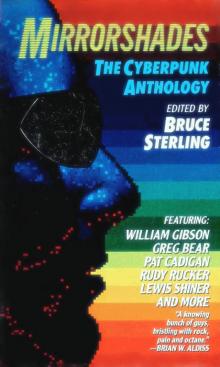 Mirrorshades: The Cyberpunk Anthology
Mirrorshades: The Cyberpunk Anthology The Wonderful Power of Storytelling
The Wonderful Power of Storytelling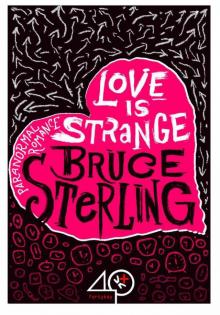 Love Is Strange (A Paranormal Romance)
Love Is Strange (A Paranormal Romance)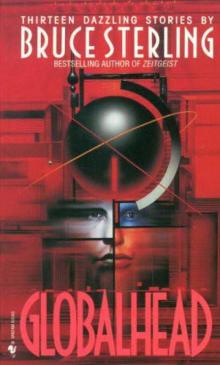 Globalhead
Globalhead Essays. FSF Columns
Essays. FSF Columns The Hacker Crackdown
The Hacker Crackdown Bicycle Repairman
Bicycle Repairman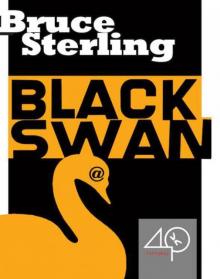 Black Swan
Black Swan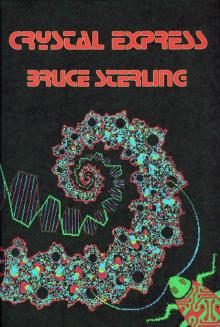 Crystal Express
Crystal Express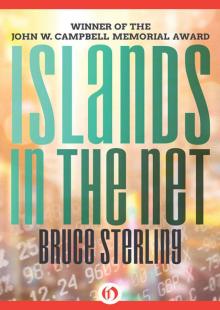 Islands in the Net
Islands in the Net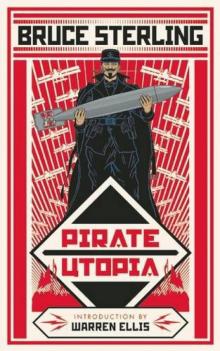 Pirate Utopia
Pirate Utopia GURPS' LABOUR LOST
GURPS' LABOUR LOST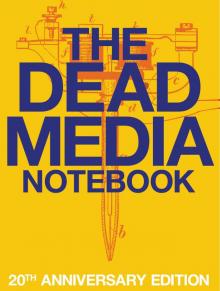 The Dead Media Notebook
The Dead Media Notebook Unstable Networks
Unstable Networks The Manifesto of January 3, 2000
The Manifesto of January 3, 2000 Heavy Weather
Heavy Weather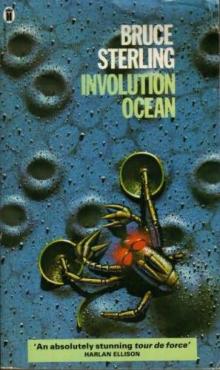 Involution Ocean
Involution Ocean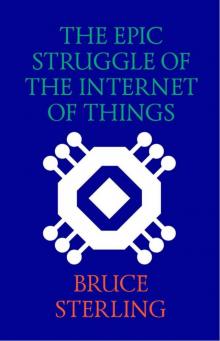 The Epic Struggle of the Internet of Things
The Epic Struggle of the Internet of Things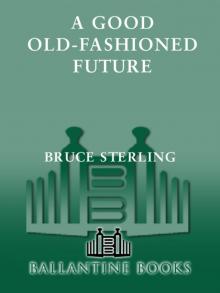 A Good Old-Fashioned Future
A Good Old-Fashioned Future The Littlest Jackal
The Littlest Jackal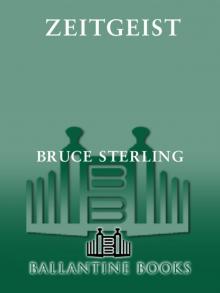 Zeitgeist
Zeitgeist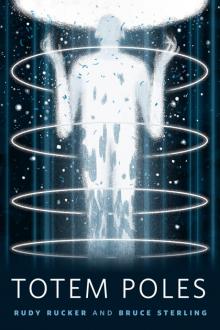 Totem Poles
Totem Poles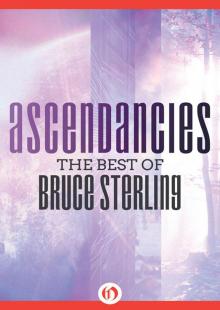 Ascendancies
Ascendancies CyberView 1991
CyberView 1991 War Is Virtual Hell
War Is Virtual Hell Taklamakan
Taklamakan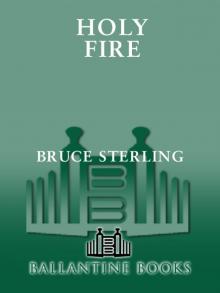 Holy Fire
Holy Fire Cyberpunk in the Nineties
Cyberpunk in the Nineties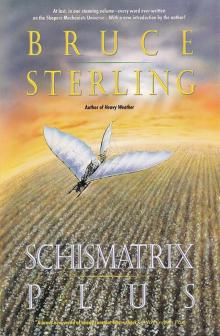 Schismatrix Plus
Schismatrix Plus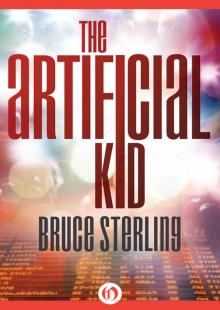 The Artificial Kid
The Artificial Kid Essays. Catscan Columns
Essays. Catscan Columns Maneki Neko
Maneki Neko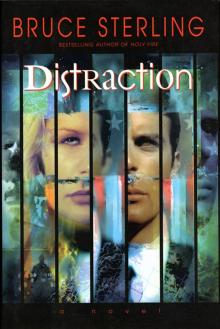 Distraction
Distraction In Paradise
In Paradise Red Star, Winter Orbit
Red Star, Winter Orbit Luciferase
Luciferase